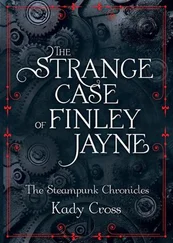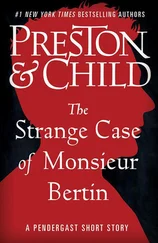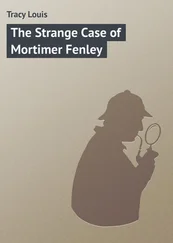The French women who’d cavorted with Germans couldn’t hide their Nazi trysts any better than their ears, while de la Mazière wove incredible fabrications and repatriated with little problem. Spent his jail time in a luxury cell, his labor assignment: organizing the warden’s formal dinner parties. Until a mysterious yellow telex arrived, pardoning him after only five years. Returning to France had been in a sense the same as leaving to fight against it: both were thresholds of radical disconnection. Twice now, he’d burned all his papers and identification. Twice, crossing a threshold had promised an instant crumbling of his own past.
The Frenchman was grabbing locks of Rachel K’s hair and running them through his fingers. He pulled firmly at her scalp, but it was a pleasant sort of firmly, a gently-firmly.
“ Friendliness is a service ,” he said. “Of course. You need privacy. Ease of mobility. People get in the way.”
They really did, she thought. Even Prio. Near the end, he came around too frequently, and she felt a wearying duty to keep fixing herself into something familiar and consistent that he could recognize.
“Friendship,” de la Mazière said, tugging her hair to angle her face toward his, “is a barbaric concept.”
He was looking at her, and she had the funny feeling that if time and everyone suspended in its viscous grip was just then frozen, only the two of them would be left as they were, sentient and unfrozen.
“It’s funny, I must have been mistaken,” he said. “I remembered your hair as quite a bit longer. Even last night.” It was above her neck. He knew he wasn’t mistaken. He was being coy.
“I cut it,” she said. “Bleached hair doesn’t have full value.” But the truth was that she’d overvalued her hair. In every fantasy she had, every impossible scenario that floated into her mind, she always had waist-length hair. As if long hair were part of a tendency to indulgence, delusion, impossibility. And so she’d bladed it to her chin that morning, long platinum hair gone into the trash. Slumped and lustrous, like a discarded wig.
“What do you like to do?” he asked, “besides cut your hair and paint your legs?”
All men at the Tokio asked this. What do you like? It was part of the tête-à-tête of her profession, but what the men wanted was a limited variety of set responses: I like pleasing you. I like squirming on your lap. I like to fantasize about a man just like you watching me take my clothes off. I think about it when I’m alone, and I have to put my own little girl hands in my underwear, just to stop the longing to be on your lap. Gullibility was beside the point: hearing these things was a performance the men were paying for. They didn’t really want to know what she liked, and it never would have occurred to her to tell them. But she figured that the Frenchman, with his bemused half-smile, was too clever to want such an obvious put-on. He seemed to understand flirtation — real flirtation, and not a bluntly performed simulation of it. She suspected that if she said “I like squirming on your lap,” he’d surely laugh his head off, and at her expense.
“I like those few days of the year when it’s cold here, at the end of hurricane season,” she said. “It’s cold enough you need a sweater. And at night, blankets. But I don’t fall asleep with blankets over me. I leave them down at the end of the bed and make myself fall asleep uncovered. When I wake up later in the night, freezing cold, I reach down and pull up all the blankets.”
De la Mazière thought of this girl making herself fall asleep cold, naked and uncovered in order to then feel warmth with more intensity. He couldn’t help but imagine being the warm body that smothered this petite girl, cold and shivering on a mattress. Though he didn’t want to be just the warmth, he realized, but the cold as well. What preceded, in this fantasy, was him stripping the bed and leaving her shivering in nothing. Maybe underwear. Him, making her cold. And then warm.
He looked at her Manouche gypsy or German Jewish face, this girl with her ink-laced legs and her K name, so obviously middle European. Among giant-sized strippers, tomcat actor-presidents, gangsters and homosexuals. Still, she stuck out.
“I think you should tell me your story,” he said. Not that he didn’t believe the orphaned-at-a-burlesque club tale, but he wanted something else. He wasn’t sure whether he wanted a made-up story or a true story, or even what the difference was. People talked about character, a defining sort of substance. But deception was a substance as well, as relevant and admirable as what it covered. If it covered anything, that is. He had great empathy for affects and evasions.
“Okay here’s a story,” she said. “A man named Ferdinand K came over from France. He worked in cinema. Met a girl named Aloha. My grandmother. She was young. Younger than I am. They had a baby — my mother — the nothing, and then they both dropped dead of venereal diseases. My mother, the orphan, was a street urchin. I don’t know who my father is. I told you the rest of it already.”
“You’ve told me circumstances. Not story.”
She looked slightly hurt. “Okay, fine. Maybe you should tell me your story,” she said, catching his eye through the tinted lenses, “ Ambassador .”
He smiled as if to say, no problem, watch me give you nothing. “I’m Christian de la Mazière. And okay, I’m not an ambassador.” He paused. “I’m a journalist.”
“You’re lying,” she said.
“I suppose I am.”
“And you know what else? I have a feeling you dismiss lowly ‘circumstances’ because you’re not willing to cough them up.”
“Why should I divulge what is meaningless?” he said. “A banal dossier of ‘this was my grandfather, I was steered into this or that profession.’ My existence is free of those tedious things.”
“I bet the opposite is true,” she said. “I bet you live in a prison of your ‘tedious’ past.”
“It isn’t a prison,” he said. “You’ll see.” And then he fell quiet, as if her accusation had sent him drifting into contemplation.
If only it were tedious, he thought at her, but didn’t say out loud. If only . In fact, it’s sordid and remarkable to have been an incidental SS. With no war, no army, no country. Only floating memories of medals and Maxim’s and going to fight the Bolsheviks, thinking fascism was better than Stalin and that I was fighting for heritage and class, and then knowing that I wasn’t. That it had nothing to do with politics or ideals. Of course, there were some with ideals. Not me. But I had conviction — you might even call it rare — the conviction to enlist at the Hotel Majestic on a stifling hot August day in 1944, when the war was already lost. Why I enlisted. I’m still not sure, but a reason was beside the point: It was a pure sacrifice, empty of reasons, a bigger, more grand self-erasure. On my way to enlist, I saw people shuttling into the Velodrome. I won’t deny that I saw them, being led inside. I was a helmeted dreamer who waited in a German uniform while Pétain dozed in his chambers. Pétain in his kepi with the scrambled eggs braid, who refused to see us, the few who were ready to keep going, the only people, correction, the only person with the conviction to fight to lose, to test nothing but extremes. They all caved and Pétain slept in his kepi with the scrambled eggs braid. I’m a man who had to go it alone, fight with conviction and for nothing, with men who didn’t speak my language. The only one who didn’t cave.
Fair enough, he thought. She’s no more mysterious than I am to myself. And so here I am, in a burlesque club below the Tropic of Cancer, in this damp city where dreams are marbled with nothingness.
Читать дальше












